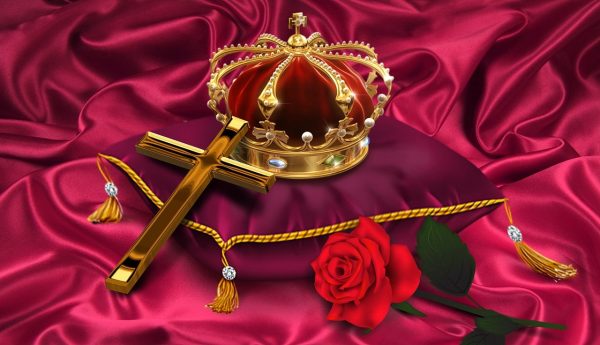The job of the King is to reign, and in that work he performs two main functions:
Head of State
Unlike politicians, the King does not owe his position to a vote or vested interests. He is politically neutral and is untainted by everyday parliamentary turmoil and party politics. This means he can more easily represent all the people in a way that an elected President cannot.
If the Head of State is elected, people are less likely to look to him or his with affection. Half the country may oppose them! The president can become a divisive figure, and can end up being a scapegoat for the country’s problems. This can breed cynicism, anti-politics attitudes, and even international opposition to the country itself.
As a politically neutral Head of State, the British monarch is able to provide a focused and tangible symbol of the people’s sovereignty.
National Icon
The King is a distinct symbol of national identity. He represents the United Kingdom—the nation, its constituent parts, and the people—in a way that a transitory politician, who is here today and gone tomorrow, can never do.
When we look at the King, for example, we see more than Mr. Windsor. We see the embodiment of the national story of all parts of our Islands, stretching back through time, right back to Bruce and beyond.
The history of the four corners of the UK can be traced, dated, and discovered through the family history of the reigning monarch. He is a living link to our national story.
For some of us, the King and the Royals are also part of our own personal British identity; a way to identify with a larger community outside of ourselves.
Like a family, we grow old with these people in our lives. During the reign of the late Queen, she saw 15 different Prime Ministers. Most of us could only name a handful. The USA has had 14 Presidents. How many can we name? Yet in all that time, there was only one Queen. And we all know who she was!
So the monarchy is also about identity—national identity and personal identity—and the sense of place, the sense of self, the sense of belonging, which flow from these identities.
In this way, the monarchy conveys a sense of perpetual national continuity. When George VI passed away it was said: “The King dies but Britain lives on and a new Hand takes the Wheel of State.” We said the same thing when Her Majesty passed away.
Through King Charles’s children and grand-children, we see an assurance that this national story will continue into the future, and that the soul of the nation is immortal.
In an ever-changing nation and world, people are looking for symbols, icons of enduring identity and reassuring dignity. People are looking for constancy, for something which is faithful and remains, and is always here. In this way, the monarchy is a social unifier, and provides a social stability which a temporary politician cannot.
In an era of globalism, there is a tendency for countries to become the same. The monarchy emphasises what makes us different and interesting. It’s a hugely significant cultural possession which makes Britain unique, colourful and distinct. To abolish the monarchy would be to abolish a vital part of our culture.
And for all its ups and down, it is also good that a family is situated at the centrality of British life. This esteems familyhood. And it’s great value for money! The King and the Royals help us enjoy massive international goodwill. They generate economic activity wherever they go, and they are always helping to publicise good causes, and raise money for charity.
————
Alistair McConnachie is the Founder, and a Director, of the Glasgow-based pro-UK campaign group and think tank A Force For Good. This article is adapted from “Happy and Glorious,” the Platinum Jubilee edition of Union Heart, available in the UK at https://www.aforceforgood.uk/product-page/happy-and-glorious
This article and related pieces on King Charles III appeared in the Fellowship & Fairydust issue Happy & Glorious: A Royal Celebration.

